
DEIB initiatives are a business strategy that could help set your organization up for success. Diversity, Equity, Inclusion, and Belonging are the basics for cultivating an equitable and inclusive workplace culture. In a professional setting, it has been observed that employees reach their full potential when they feel valued, and accepted, and have fair access to resources and opportunities.
A study by the Josh Bersin Company found that companies that integrate DEIB programs into their daily practices and have strong leadership support see significantly better employee feedback which could passively help the company better its overall performance.
In this article, we will discuss the importance of DEIB initiatives in the workspace as a factor for boosting a company’s performance, their practical application, challenges, and impact.
DEIB (diversity, equity, inclusion, and belonging) initiatives promote the growth of an organization creating an environment where each employee feels respected and recognized, which pushes him to work at his highest capacity. Such efforts by the leading organizations towards creating workplace diversity help in good employee turnovers and attracting better talent pools, eventually leading to meaningful progress.
Here is a breakdown of the core definition:
Diversity refers to the differences among people. This could be their race, sexual orientation, age, even talent, skills, or experience. In the workplace, diversity means having employees from various backgrounds with diverse perspectives. This leaves a positive impact on the workforce and fosters creativity and innovation.
Equity simply means fairness and justice. It is, however, a lot different than ‘equality’. Where equality means providing the same to all, equity means recognizing the fact that we all start from a different place and we must acknowledge it, and make required adjustments to address the imbalance.
Inclusion refers to involvement, where everyone is recognized and acknowledged. An inclusive environment promotes and sustains a sense of belonging, it values and practices respect for the talents, beliefs, backgrounds, and ways of living of its members. These inclusion initiatives further help induce within them a sense of community, making the employees feel more belonged.
Belonging is about feeling valued, respected, supported, and empowered in professional, educational, and personal endeavors.
Diversity, Equity, Inclusion, and Belonging (DEIB) are becoming essential for organizational success and are now viewed not only as just ethical efforts but as an essential business strategy with a wide range of positive effects.
Various studies indicate that organizations that adopt DEIB principles are more creative, adaptable, and appealing for talent pools, leading to enhanced employee engagement and performance.
Let’s look at the micro-level impact of implementing DEIB and what metrics they influence:
Research shows a positive correlation between diversity and financial success. A study by McKinsey & Company found that companies in the top quartile for racial and ethnic diversity were 36% more likely to outperform their competitors on profitability. Whereas companies that didn't consider an employee's gender identity were 25% more likely to achieve above-average profitability.
This reflects how diverse perspectives fuel better decision-making and innovation, and increased Employee Engagement. DEIB initiatives foster an inclusive work environment, where current employees feel valued, heard, and respected.
A team formed as a result of these diversity initiatives contributes to a variety of viewpoints, which fosters innovation and creativity. According to a study by Harvard Business Review, businesses with a higher level of diversity are 45% more likely to report increasing their market share annually.
This advantage results from diverse teams' ability to question the current quo and foster unconventional thinking, both of which are essential for creating creative answers to difficult problems.
Today, in most companies, the entire organization is socially conscious and thus focuses on promoting a culture of diversity.
A study which was conducted by Glassdoor found that 76% of job seekers consider a company’s commitment to diversity an important factor before making their decision. Emphasizing such a workplace environment enables organizations to attract and retain high-caliber talent, helping to reduce employee turnover costs and also maintaining inclusive leadership.
Organizations that adhere to DEIB not only draw in diverse talent but also establish a reputation as a safe place to work. This enhances their reputation and increases their appeal to customers, potential employees, and even investors. According to a survey by PwC, it was found that consumers are more loyal to businesses that share their beliefs.
For DEIB initiatives to be effective, they must be actionable, measurable, and integrated into an organization’s core strategy. This strategic thinking includes creating clear objectives, providing diversity and inclusion training during or after the hiring process, implementing policies that encourage an equitable environment, and regularly measuring the positive impact.
Leveraging data analytics, and employee surveys- to track diversity metrics, inclusion scores, and engagement levels allows companies to adjust their strategies and remain accountable to DEIB goals.
In summary, DEIB isn’t just good for society; it’s a powerful driver of professional development and business success.
Organizations that make DEIB a priority stand to gain significantly in terms of happier employees, innovation, and financial performance, creating an equitable workplace that also has a very inclusive workplace culture.
DEIB Programs Many leading companies have developed robust Diversity, Equity, Inclusion, and Belonging (DEIB) initiatives to enhance workforce inclusion and improve company culture. Here are three successful examples that highlight the impact of DEIB programs:
Microsoft focuses on an inclusive culture when it comes to its hiring practices. For example, their Autism Hiring Program promotes neurodiverse inclusion, and the annual Diversity and Inclusion Report tracks progress against specific goals. Such diversity initiatives help significantly improve employee engagement.
Johnson & Johnson emphasizes equal opportunities with initiatives like "Our Credo", which works with Employee Resource Groups to meet diverse needs. Their Advancing Black Pathways program increases the percentage of black employees, achieving notable success in hiring and retaining underrepresented employees.
These are some ways to measure the success of DEIB Initiatives
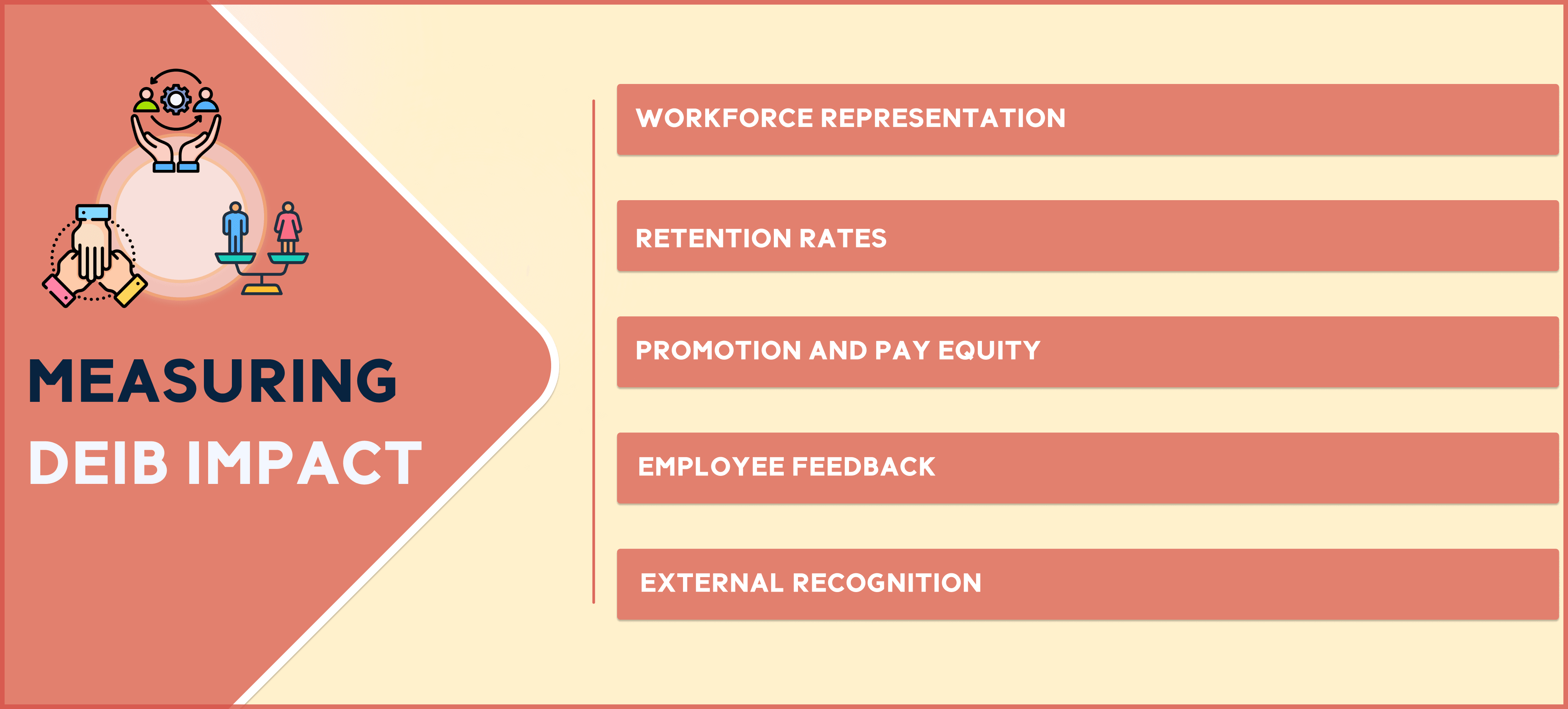
Track diversity across roles by monitoring demographics like gender, ethnicity, age, and disability at all levels. Metrics such as women in leadership or minority representation in senior roles are common benchmarks. Companies like Intel and Accenture use annual reports to transparently share progress.
High turnover among specific groups can highlight gaps in DEIB efforts. Comparing retention rates for underrepresented employees to the overall workforce helps identify areas needing attention, such as better mentorship or career development.
Regular audits ensure equal career advancement and fair pay, addressing issues like pay gaps and salary compression. These reviews align DEIB goals with fair workplace practices.
Employee Resource Groups (ERGs) offer valuable insights into inclusion challenges. Regular feedback from ERG members helps organizations refine strategies to address concerns like bias or lack of career growth.
Awards such as Forbes’ “Best Employers for Diversity” validate progress and boost a company’s reputation. They also attract diverse talent and show employees that inclusion is a priority.
Simple metrics and transparent reporting make DEIB efforts more actionable and impactful.
Organizations implementing DEIB initiatives face notable challenges:
Detecting pay inequities based on factors like gender differences or race can be complicated, especially in large organizations where such disparities might be subtle or systemic.
Maintaining equitable salary increases along with equitable opportunities across job levels is crucial but difficult. Issues like salary compression, where lower-level employees receive less favorable raises compared to those at higher levels, can create long-term inequities.
Employees seek clear and transparent communication around pay and benefits. Without transparency, organizations may struggle to foster trust with employees.
CompUp offers data-driven solutions to overcome these challenges effectively:
CompUp’s advanced pay gap analysis helps organizations identify and close pay disparities within the workforce, with filters to detect specific gaps like gender pay inequity, aligning with DEIB goals of fairness and equity.
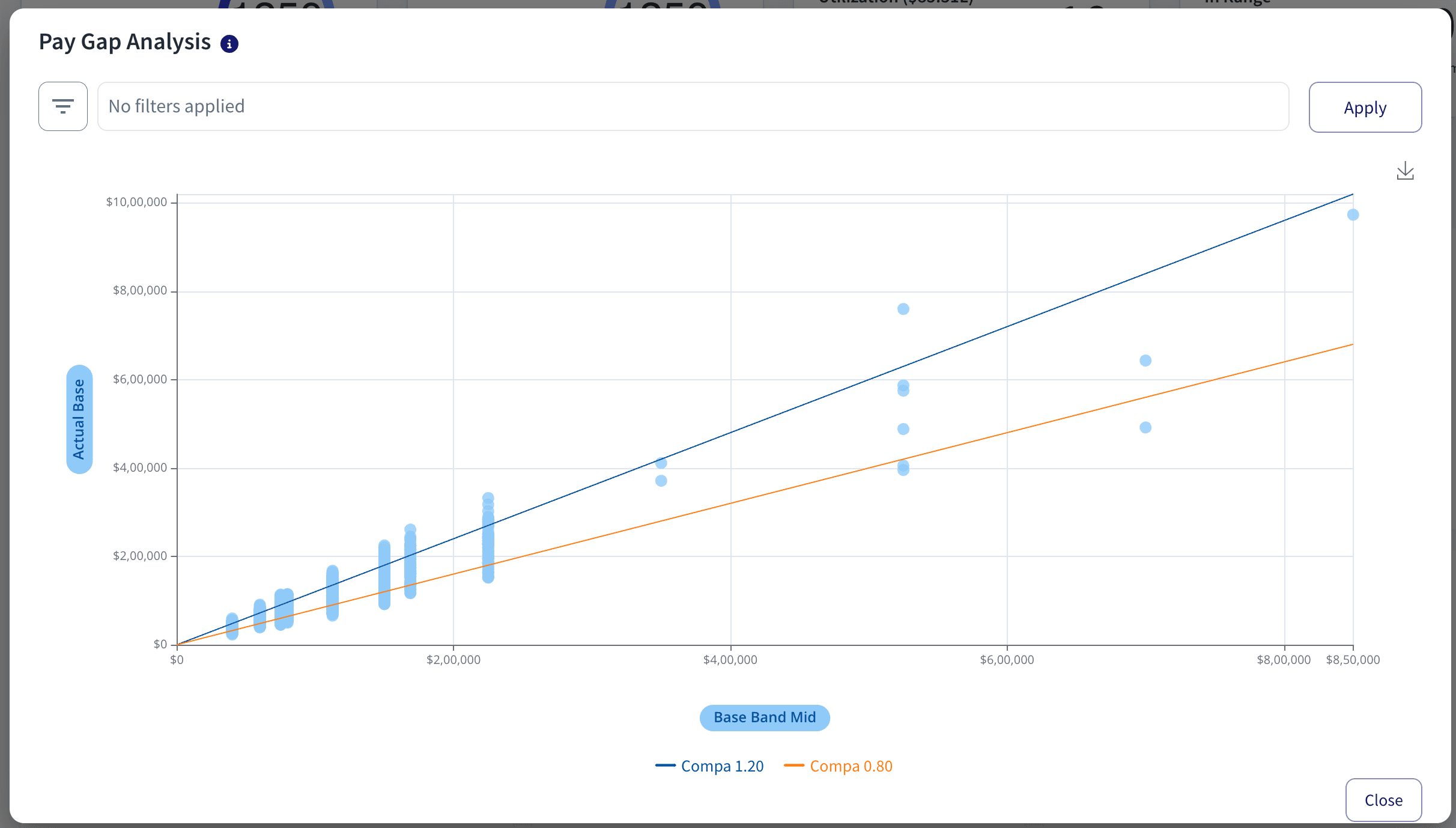
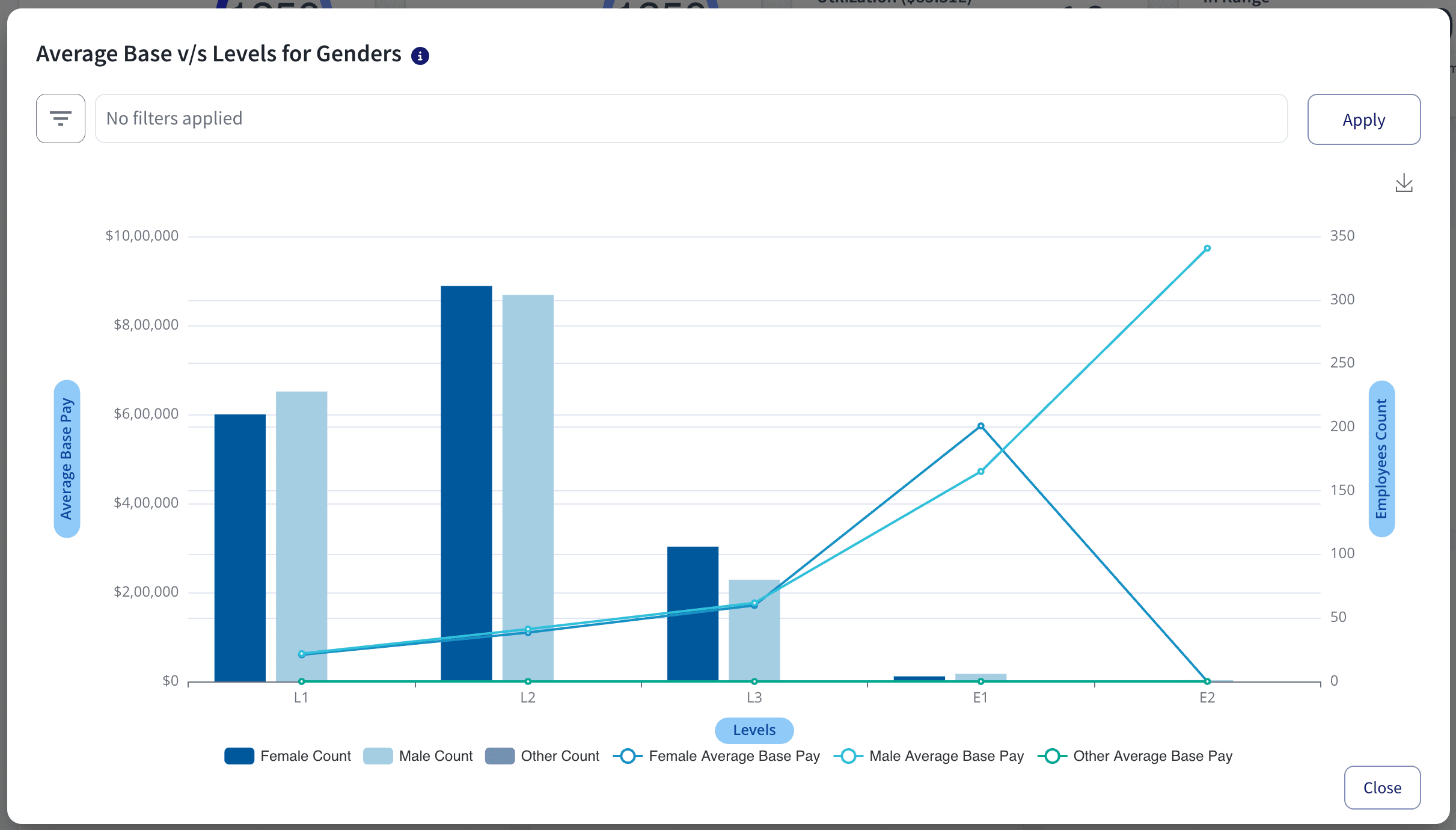
With CompUp’s increment distribution tool, companies can manage salary compression issues by understanding pay progression across job levels, ensuring fair career advancement opportunities.
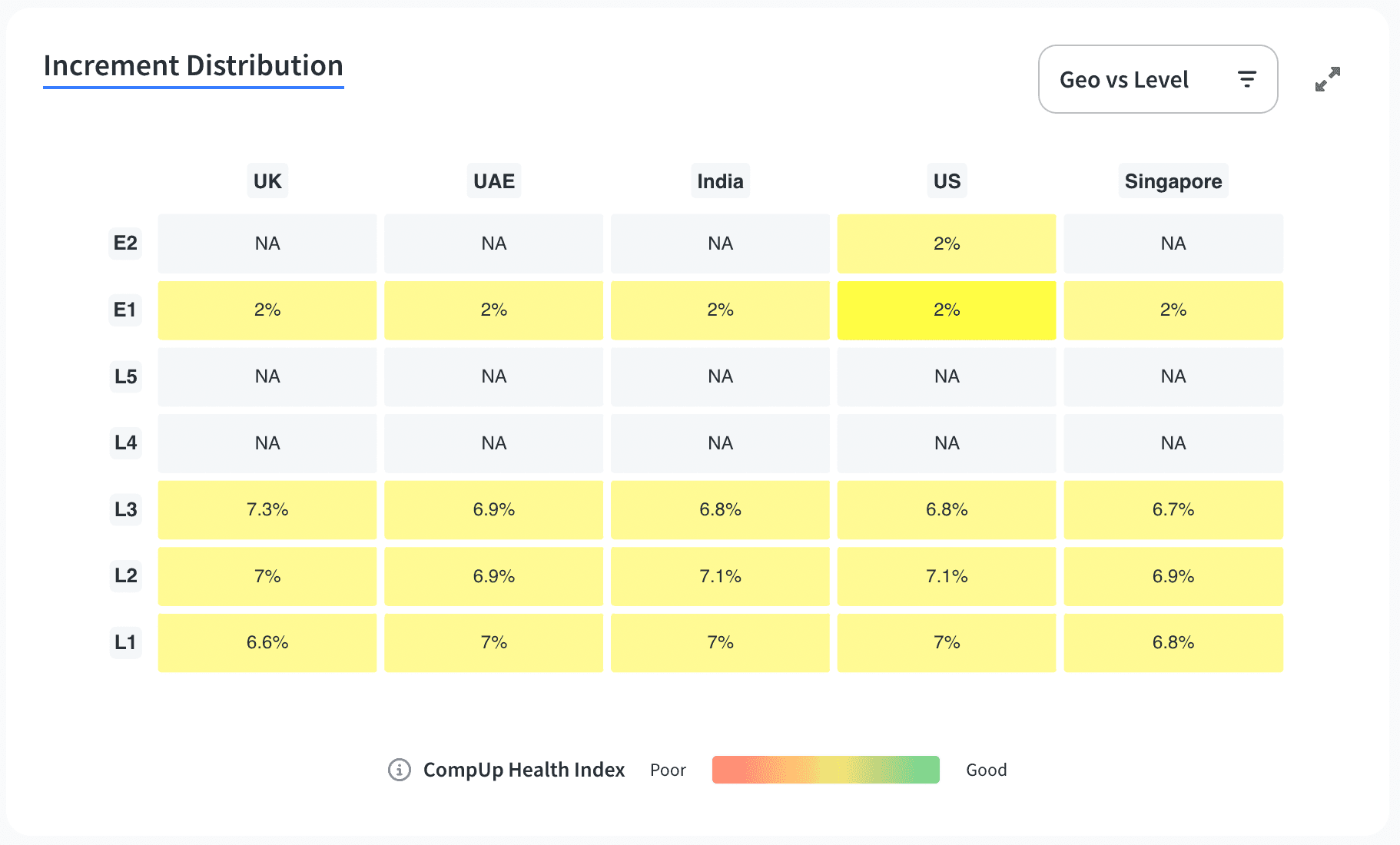
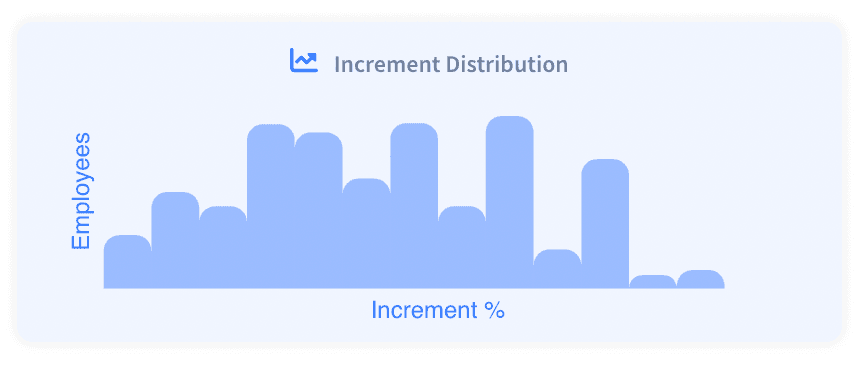
CompUp provides a detailed breakdown of total rewards, enabling transparent communication of compensation, which is essential for building an inclusive and trusting workplace.
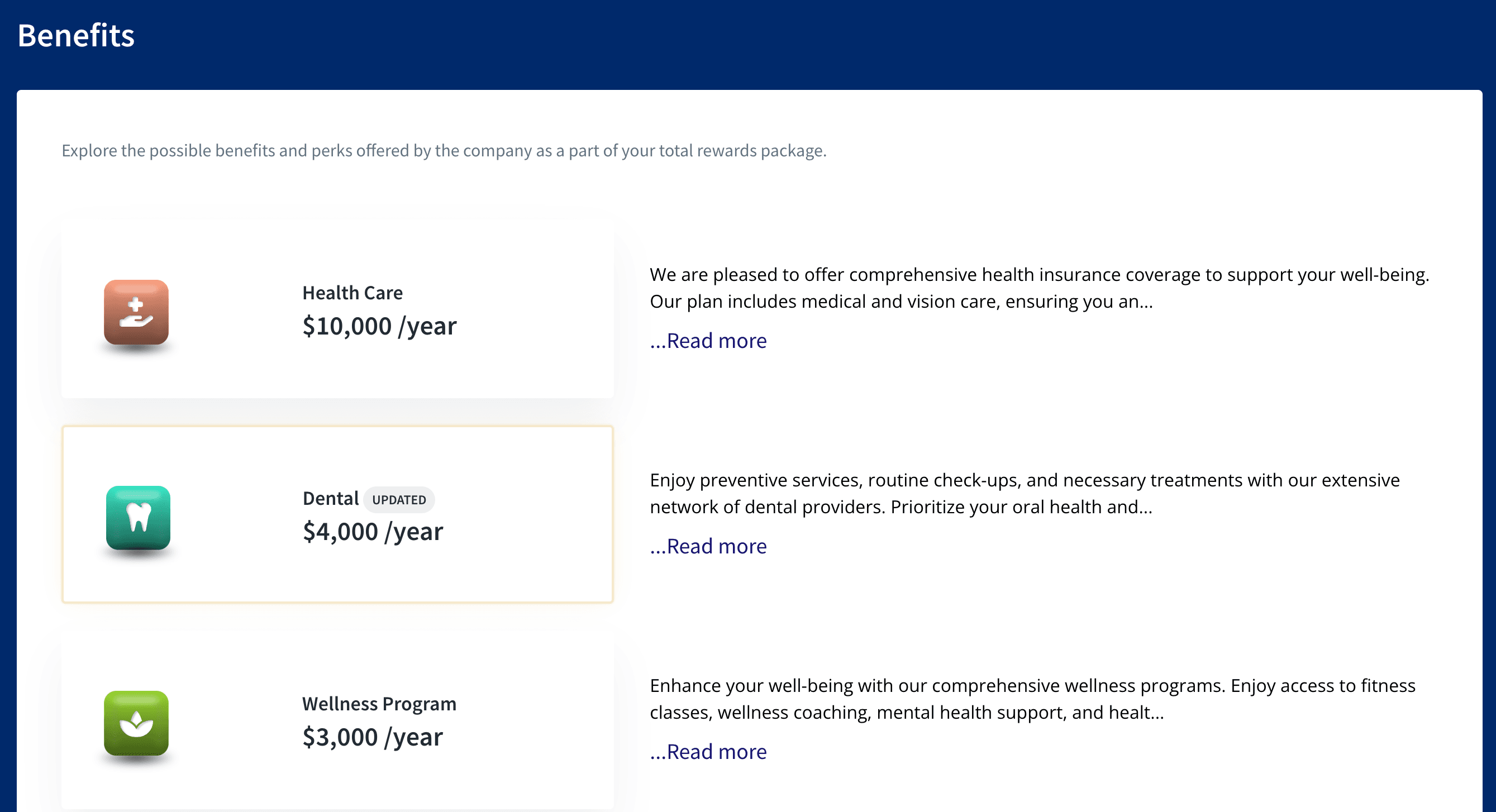
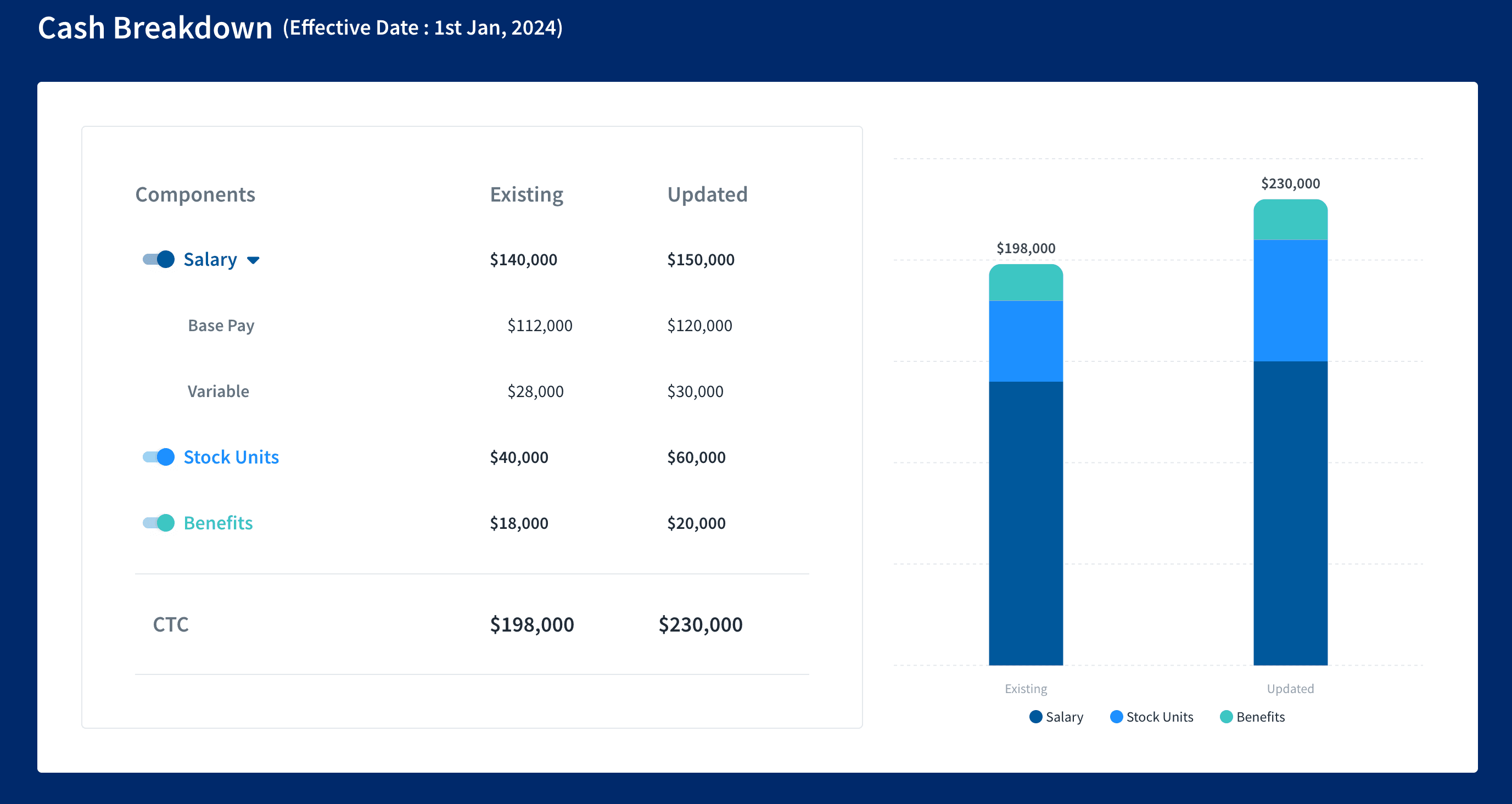
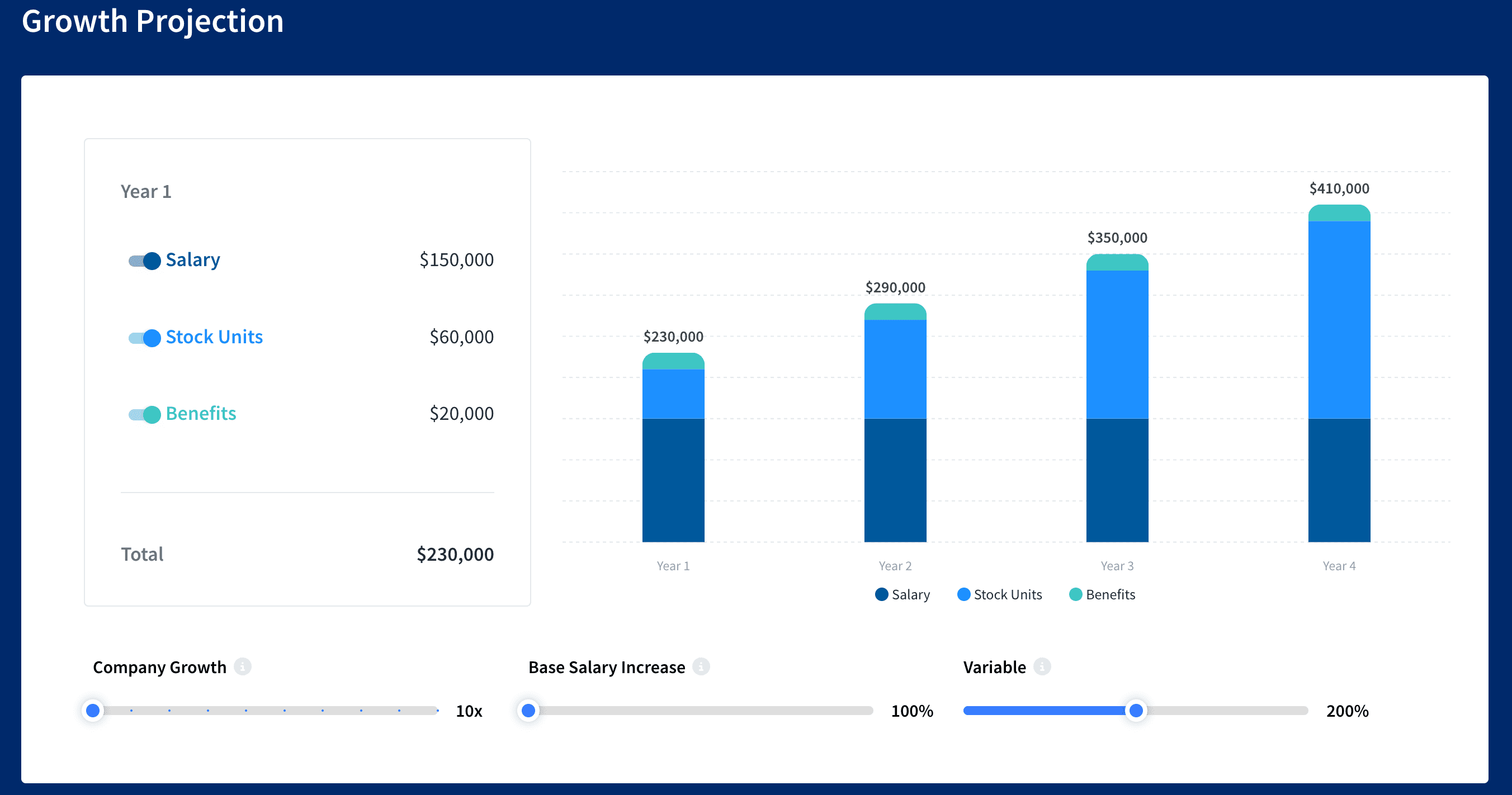
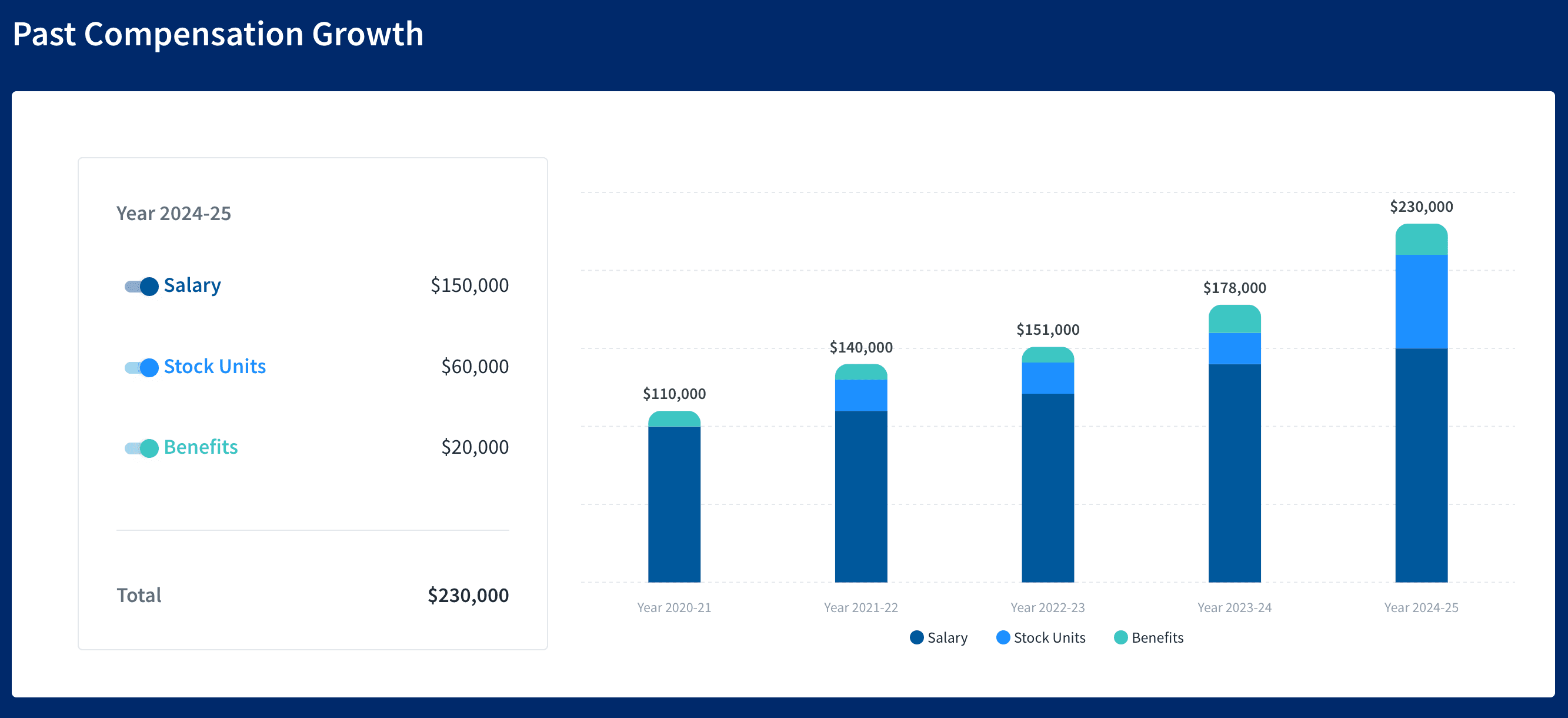
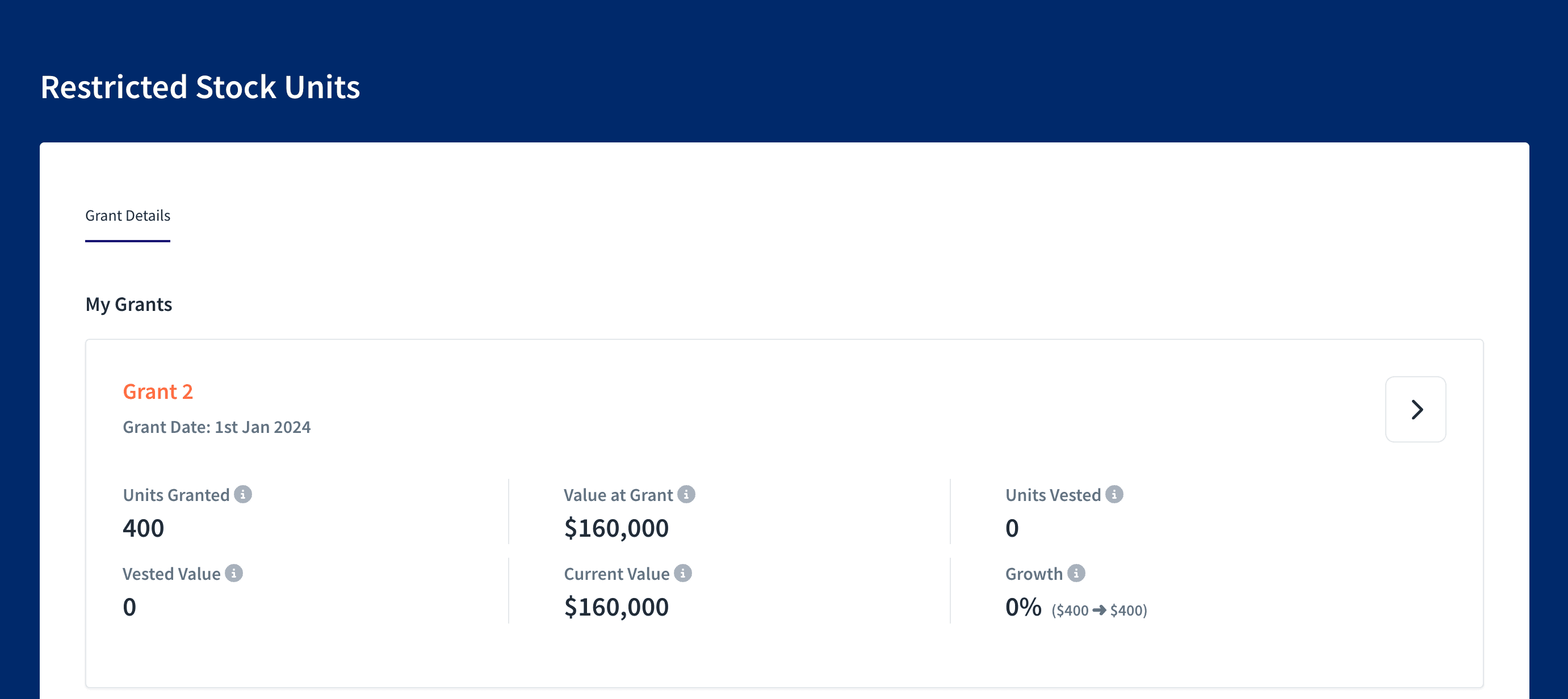
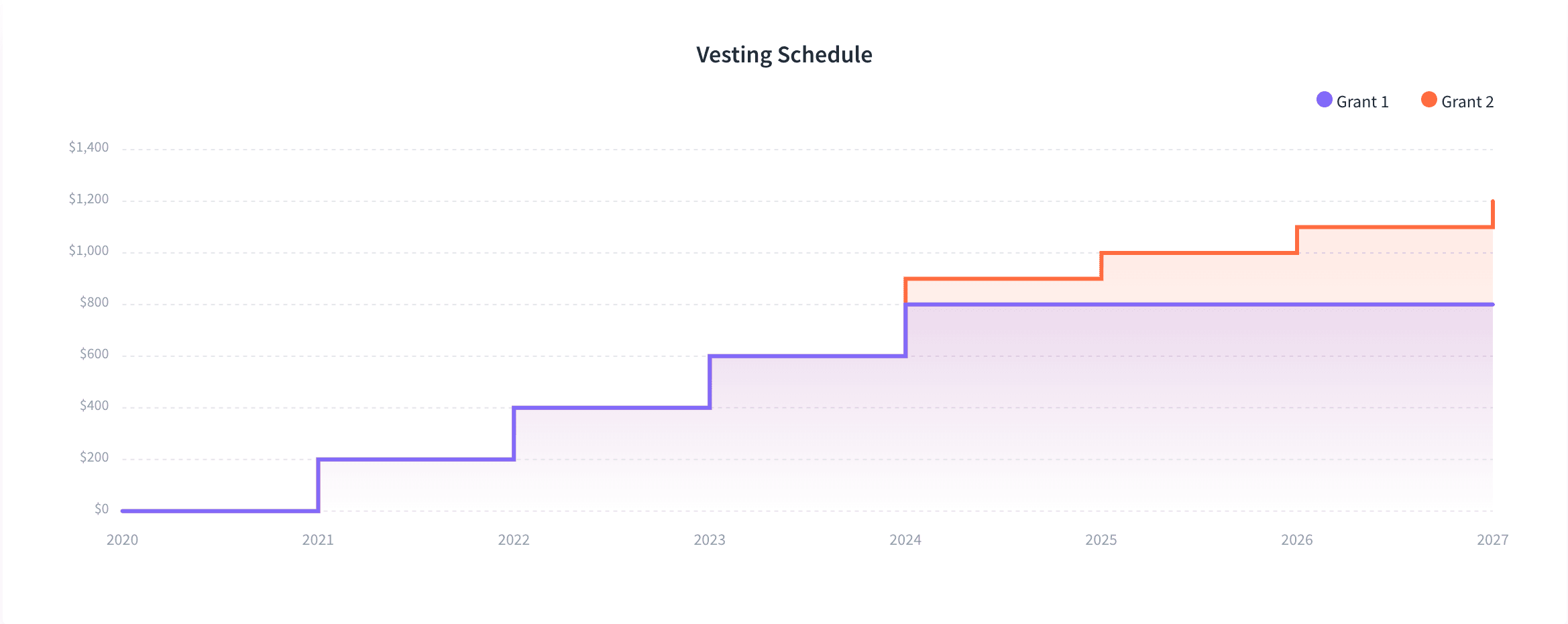
Ready to align your compensation strategies with DEIB goals? Discover how CompUp can drive equity and transparency in your organization. Learn More.
Building a truly inclusive organization goes beyond intentions—it requires actionable insights and data-driven strategies. CompUp equips leaders to tackle the complexities of DEIB with precision, ensuring fair pay, clear career paths, and transparency that builds trust. Empower your workplace to grow stronger, smarter, and more inclusive. Start with CompUp.
Revolutionizing Pay Strategies: Don't Miss Our Latest Blogs on Compensation Benchmarking